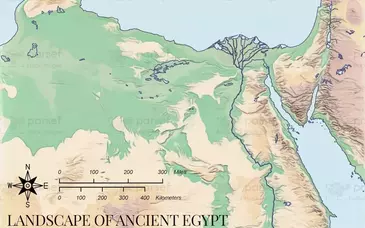Step into the hallowed halls of antiquity as we unravel the mystique surrounding one of the most iconic repositories of knowledge in the ancient world—the Great Library of Alexandria. A beacon of enlightenment in the heart of ancient Egypt, this majestic institution left an indelible mark on the history of scholarship, housing an unparalleled collection of texts that captivated the minds of scholars and luminaries for centuries.
- The Birth of a Cultural Marvel:
- The Great Library of Alexandria, founded in the 3rd century BCE by Ptolemy II Philadelphus, stood as a testament to the intellectual ambitions of the Ptolemaic dynasty.
- Located in the royal district of Alexandria, Egypt, the library quickly became a magnet for scholars, philosophers, and scientists from across the Mediterranean.
- A Vast Repository of Knowledge:
- At its zenith, the library boasted an expansive collection, with estimates ranging from 40,000 to 700,000 scrolls, covering a wide array of subjects from literature and philosophy to science and mathematics.
- The library's diverse holdings were a testament to the cultural exchanges that occurred in this ancient melting pot of ideas.
- Architectural Marvel:
- The Great Library was not only a beacon of intellectual pursuit but also a marvel of architecture. Its grand design, attributed to the architect Dinocrates, featured lecture halls, gardens, and reading rooms.
- The imposing facade and the famous Mouseion (the Temple of the Muses) housed scholars and provided a nurturing environment for the pursuit of knowledge.
- Eras of Prosperity and Tragedy:
- The library flourished under the Ptolemies and later the Roman Empire, drawing scholars like Euclid, Archimedes, and Eratosthenes to its corridors.
- Unfortunately, the library met a tragic end, with conflicting accounts attributing its destruction to fires, political turmoil, or deliberate acts of vandalism.
- The Legacy Lives On:
- While the physical remnants of the Great Library may be lost to time, its legacy endures. The spirit of intellectual curiosity it embodied inspired countless generations, and its story continues to captivate the imaginations of scholars and history enthusiasts.
The Great Library of Alexandria remains an enduring symbol of human aspiration for knowledge and understanding. Though the sands of time may have claimed its physical existence, the echoes of its intellectual legacy resonate in the libraries and institutions that stand as guardians of wisdom in the modern era. As we reflect on the grandeur of this ancient marvel, we are reminded of the timeless pursuit of knowledge that unites humanity across the ages.


